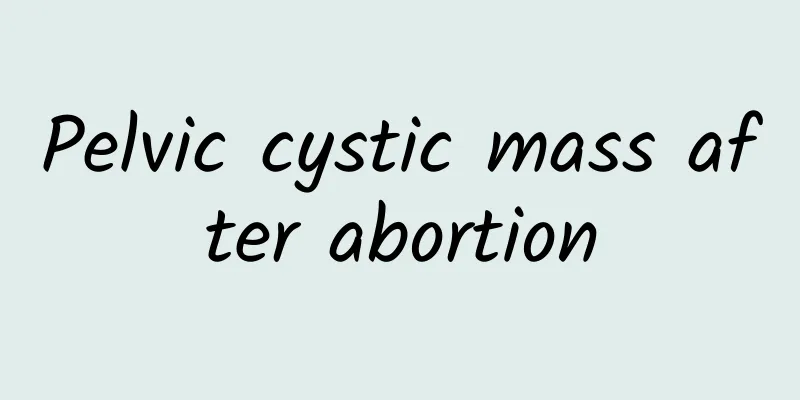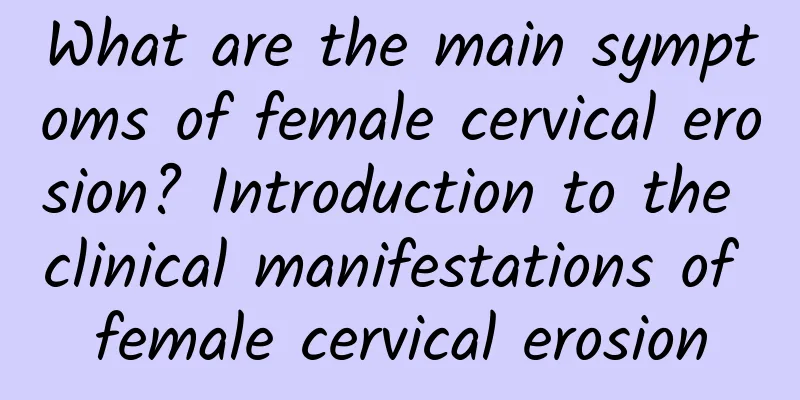Pelvic cystic mass after abortion

|
The presence of pelvic cysts or masses after miscarriage requires attention, as they are usually related to inflammatory infection, hormonal disorders, or abnormal tissue repair. It is recommended to seek medical attention as soon as possible, and to use ultrasound examination to determine the cause. At the same time, it can be treated with drugs, surgery, and lifestyle adjustments. 1Pelvic mass caused by infection After abortion, the wound surface in the uterine cavity is exposed. If it is not properly cared for, infection may occur, which may lead to pelvic inflammation and the formation of a mass. This mass is usually an inflammatory exudate or abscess, often accompanied by abdominal pain, fever and other symptoms. For this type of infection, antibiotic treatment is the first choice. Cephalosporins or penicillins can be used to control the condition. If the abscess is large, drainage can be performed. In severe cases, surgery should be considered to remove the infected lesion. At the same time, the vulva should be kept clean during the recovery period, and sexual intercourse should be avoided to reduce the risk of infection. 2. Hormone disorders cause cysts Abortion can cause fluctuations in estrogen and progesterone levels in the body. Ovarian dysfunction in some women may induce corpus luteum cysts, ovarian cysts, etc. These cysts are usually small and often have no obvious clinical symptoms. Small cysts can be restored through medication, such as short-term use of oral contraceptives to regulate hormone levels; if necessary, use ovulation-inducing drugs to help restore ovarian function. In your daily diet, you can eat more foods rich in vitamins and minerals, such as dark green vegetables, eggs and nuts, to help regulate endocrine balance. 3 Abnormal tissue repair leads to mass Abnormal repair of fibrous tissue in the uterine cavity or pelvic area after abortion may also form masses, such as scar tissue or ectopic tissue accumulation. If such a situation is suspected, color Doppler ultrasound examination or MRI imaging evaluation should be performed under the guidance of a doctor, and hysteroscopy or laparoscopy should be performed to remove the diseased tissue if necessary. Postoperative rehabilitation treatment should be carried out, such as insisting on appropriate pelvic floor muscle rehabilitation exercises, to promote tissue recovery and reduce sequelae. Pelvic cysts or masses after miscarriage are not trivial matters, and early intervention is crucial. After identifying the cause, choose the appropriate treatment method under the guidance of a doctor, and pay attention to hygiene and daily routine to avoid worsening or recurrence of the disease. |
<<: Vulvar pruritus White lesions of the vulva
>>: What are the typical symptoms of threatened abortion?
Recommend
What are the precautions after painless abortion?
The precautions after painless abortion surgery c...
Does intermittent fasting reduce your basal metabolic rate? Research: It does not affect the basal metabolism and can help you lose 3.5 kg per month on average
According to many scientific arguments, there is ...
What to do with ectopic pregnancy? Comprehensive understanding of 6 treatment methods for ectopic pregnancy
Ectopic pregnancy is not unfamiliar to most women...
Will a woman die if she has an ectopic pregnancy?
Many women are afraid of suffering from gynecolog...
TCM Syndrome Differentiation and Treatment of Uterine Myoma
Uterine fibroids, also known as uterine leiomyoma...
What are the symptoms of adnexitis?
Most people don't know much about the symptom...
Brief analysis of several main symptoms of dysmenorrhea
Dysmenorrhea is a gynecological disease that ofte...
What are the prevention methods for irregular menstruation?
As the incidence of irregular menstruation contin...
Early symptoms of cervical erosion
As an important part of the female reproductive o...
What are the symptoms of uterine fibroids? Will uterine fibroids reduce menstrual flow?
There are many causes of uterine fibroids, most o...
What are the symptoms of multiple uterine fibroids? How to treat multiple uterine fibroids?
What are the early symptoms of multiple uterine f...
What are the procedures for myomectomy? How is myomectomy performed?
[anaesthetization] 1. Continuous epidural block a...
Experts tell you what is interventional treatment for ectopic pregnancy
With the continuous advancement of medical techno...
What are the specific criteria for the diagnosis of menopause?
Regarding the diagnostic basis of menopause, we m...
Will unmarried women undergoing cervical erosion surgery affect pregnancy? Things women must know about cervical erosion surgery
In principle, it is not recommended for women who...









